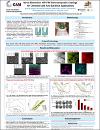Novel Electroless Deposited Corrosion - Resistant and Anti-Bacterial NiP-TiNi Nanocomposite Coatings
| Author | Fayyad, Eman |
| Author | Abdullah, Aboubakr |
| Author | Hassan, Mohamed |
| Author | Pathath, Abdul Rasheed |
| Author | Mahmoud, Khaled |
| Author | Jarjoura, George |
| Author | Farhat, Zoheir D27 |
| Available date | 2020-10-22T06:59:10Z |
| Publication Date | 2020 |
| Publication Name | Qatar University Annual Research Forum & Exhibition 2020 |
| Citation | Fayyad E., Abdullah A., Hassan M., Pathath A.R., Mahmoud K., Jarjoura G., Farhat Z., "Novel Electroless Deposited Corrosion - Resistant and Anti-Bacterial NiP-TiNi Nanocomposite Coatings", Qatar University Annual Research Forum and Exhibition (QUARFE 2020), Doha, 2020, https://doi.org/10.29117/quarfe.2020.0009 |
| Abstract | From acidic NiP electroless bath, the co-deposition of TiNi nanoparticles in the NiP matrix to form novel NiP-TiNi nanocomposite coatings (NCCs) on top of API X100 carbon steel using several concentrations of TiNi nanoparticles (0.2, 0.4 and 0.8 g L-1 in the bath) is successfully achieved. The influence of the TiNi nanoparticles on the composition, deposition rate, thickness, and morphology of the NiP coating are investigated before and after annealing at 400 oC. The addition of TiNi nanoparticles into the NiP matrix led to the transform of the amorphous structure of the as-plated NiP into a semi-crystalline one. The microhardness of the composite coating significantly enhances with increasing TiNi concentration up to 0.4 g L-1 and further improvement takes place after heat treatment. The electrochemical impedance spectroscopy (EIS) and the colony counting method are carried out to assess the corrosion protection and antibacterial properties, respectively, of the as-deposited and the annealed coatings. The results demonstrate that there is an optimum concentration for the addition of TiNi (0.4 g L-1), which offers the composite coating with the highest corrosion protection reaches to about 98 %. Below and beyond this concentration as well as after heat treatment, the improvement in the corrosion protection of the composite coatings slightly decreases. Besides, the NiP-TiNi NCCs have effective antibacterial properties as it decreased the cell viability of Escherichia coli from 100 to 19%. |
| Language | en |
| Publisher | Qatar University Press |
| Subject | Electroless NiP Composite coating TiNi Heat-treatment Antibacterial |
| Type | Poster |
Files in this item
This item appears in the following Collection(s)
-
Theme 1: Energy, Environment & Resource Sustainability [108 items ]


